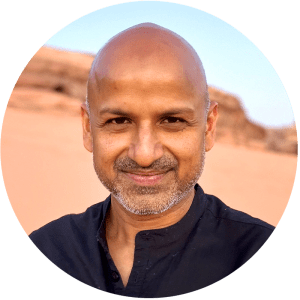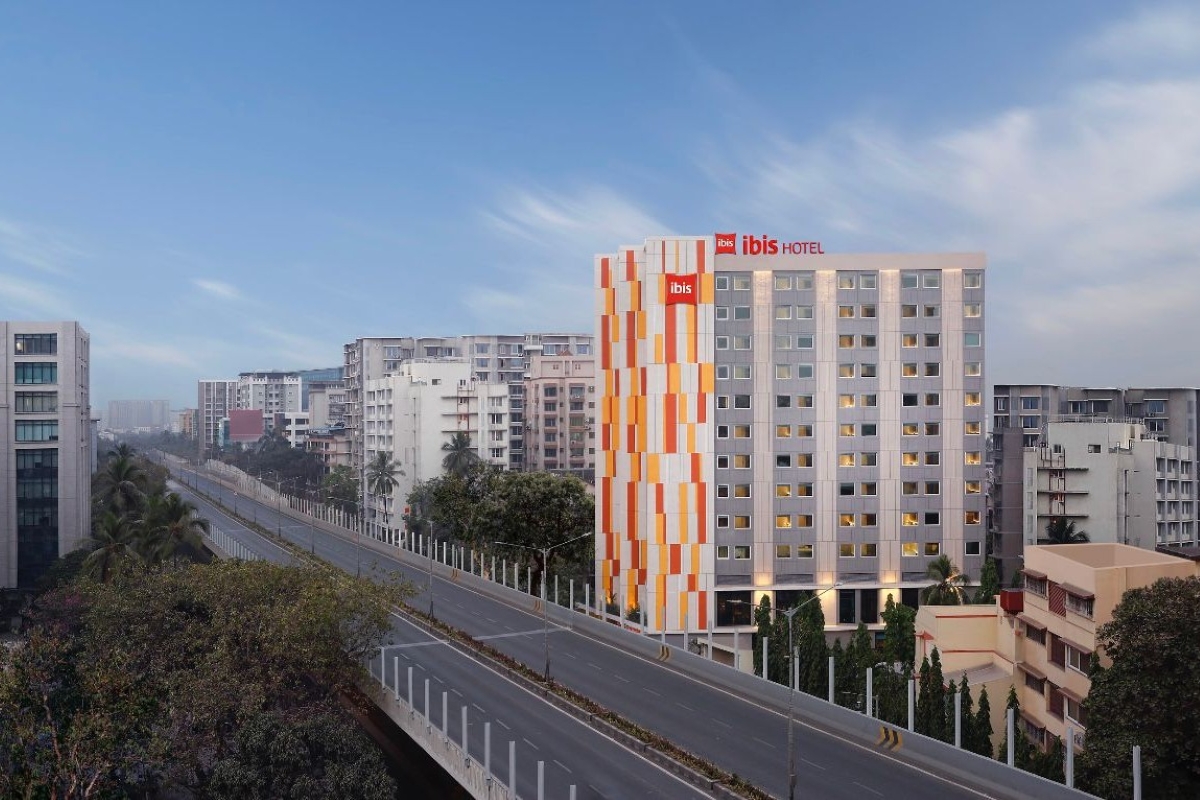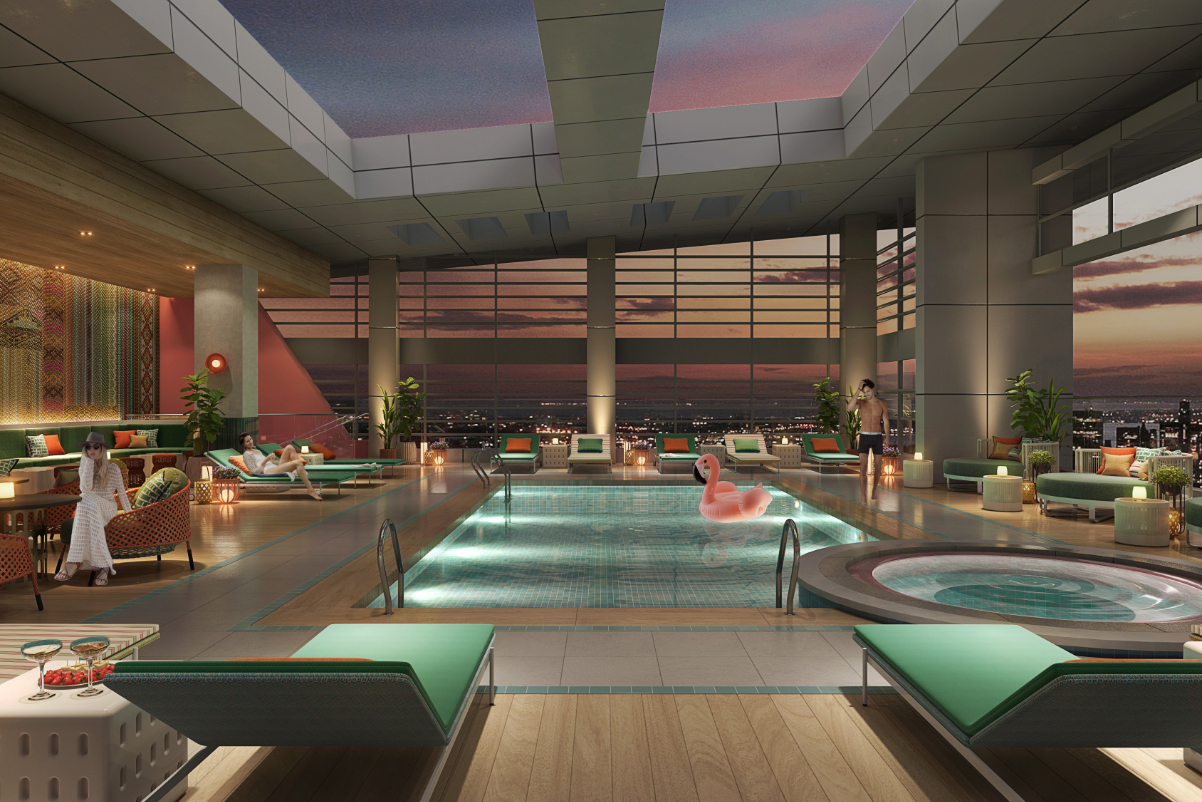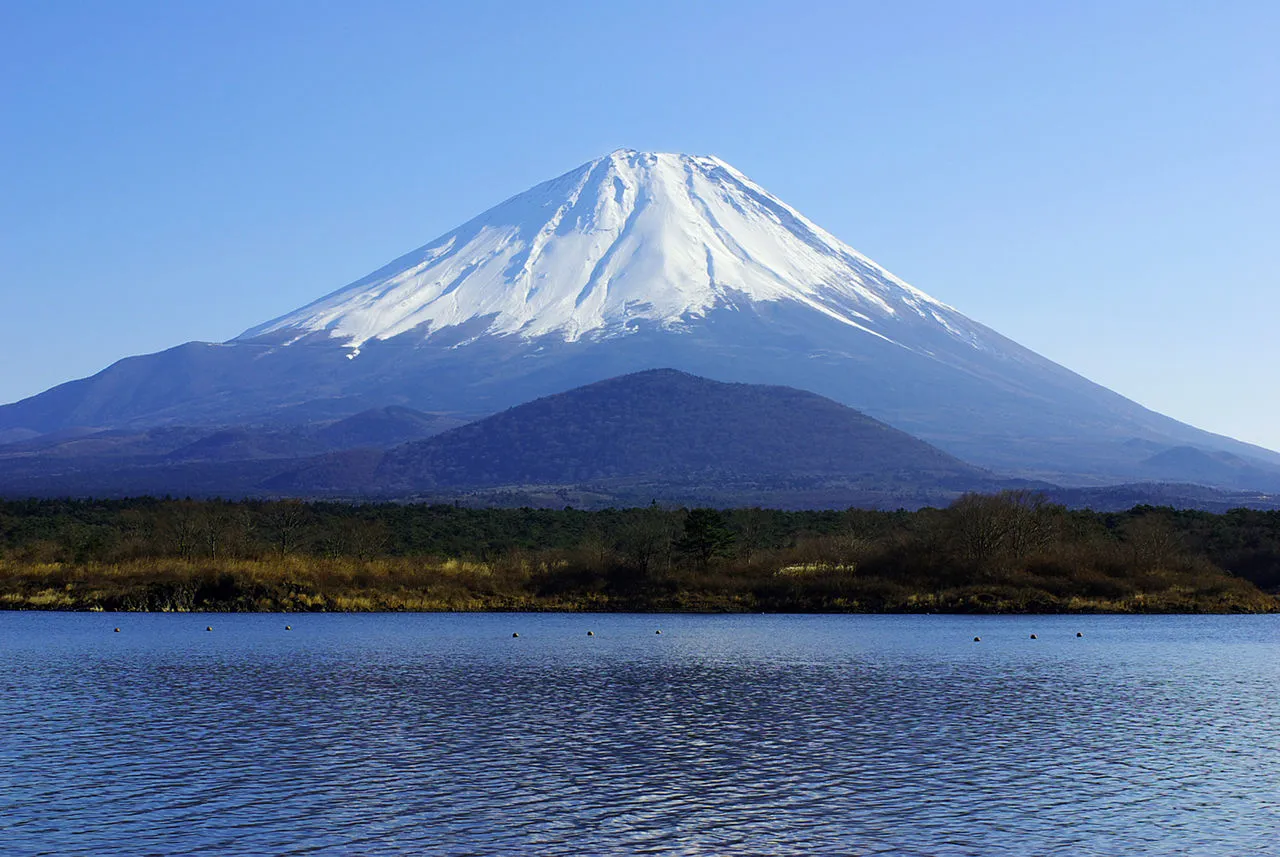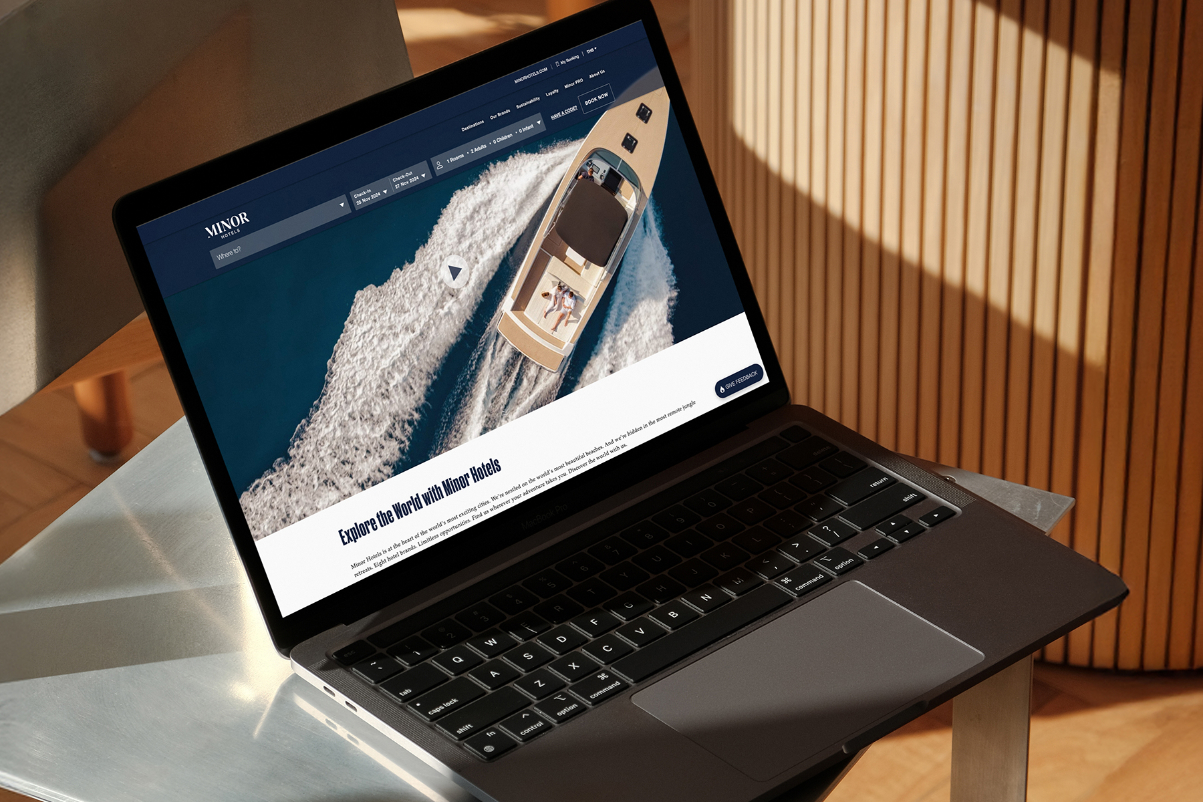Visit Baltimore CEO: Let's Have the Race Conversation and Change Tourism Once and for All
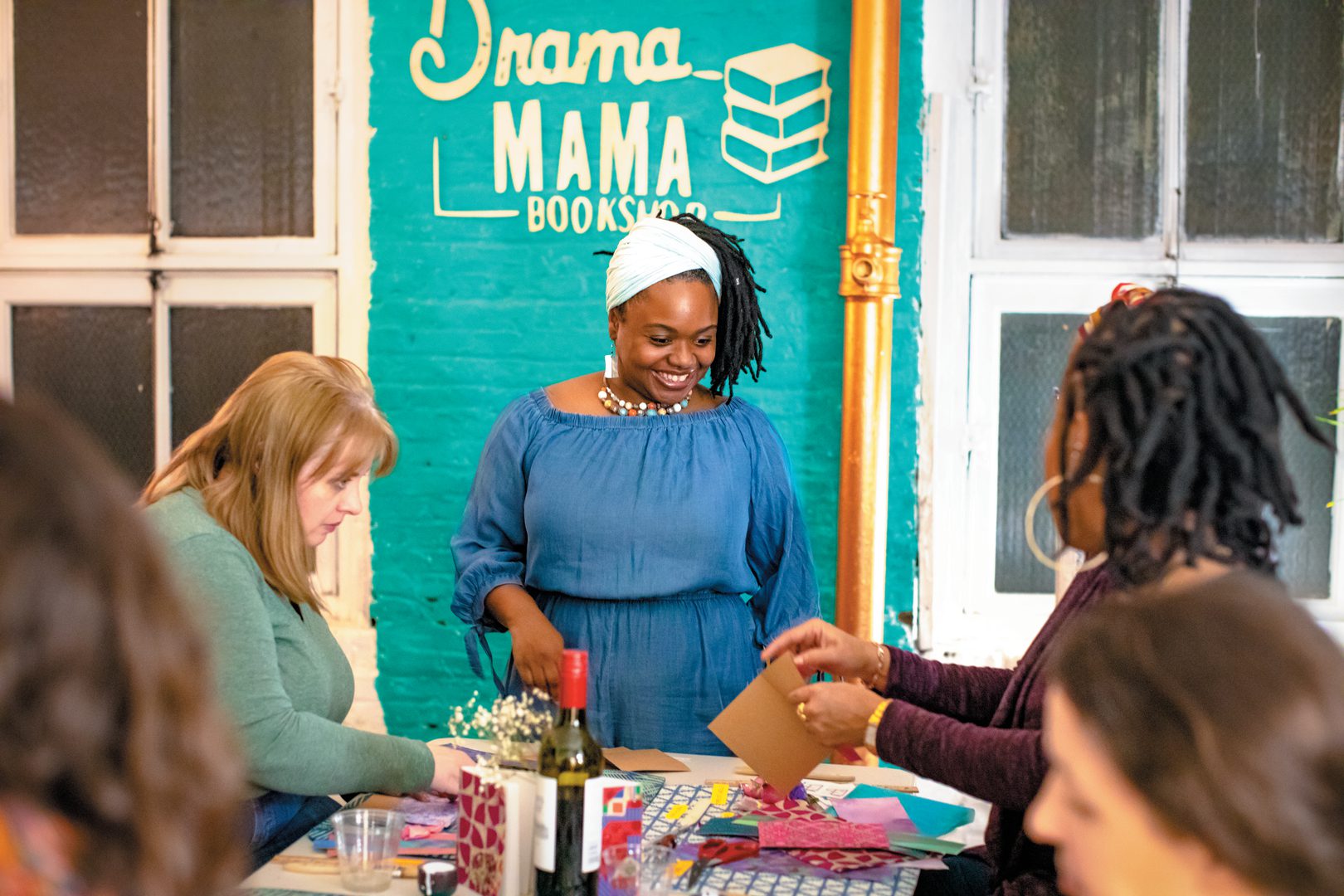
Skift Take
What are the intersections of travel with institutional inequities in America, and how do they manifest through race? A call for change has started in travel, reflective of every other business and societal sector where these discussions and calls for change are happening. And after I read a LinkedIn post from Visit Baltimore CEO Al Hutchinson, in which he talks briefly but resonantly on his personal experience with racism and "how the travel and hospitality industry and our community can be part of the change we wish to see in the world," I reached out to him to expand on this.
His city of Baltimore, with a more than 60 percent black population, has gone through so much in its history, including 2015's death of Freddie Gray in police custody and the unrest that followed in the city, and Twitter attacks from our current president. Yet, it was on the cusp of a tourism reinvention under Hutchinson's leadership, with a new brand and a Super Bowl ad, a rare commercial from a smaller tourism destination on the biggest TV event of the year. That marketing campaign is on pause now because of coronavirus shutdown, but lot more is being planned as the city and region starts to reopen.
His perspective as a black travel executive throughout his career, most recently as CEO of Visit Mobile and for the last four years at Visit Baltimore, is worth reading in full. Cutting through this dynamic conversation is his sense of hope that racial change now has to happen once and for all.
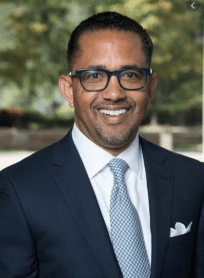 Rafat Ali: Al, from your perspective, this is so personal to you as a black executive in the travel industry, as you wrote recently on LinkedIn, but also somebody who leads a city that is at the cusp of this. The current protests and reawakening are intersecting with industry that's already hurt in so many ways over the last three months.
Rafat Ali: Al, from your perspective, this is so personal to you as a black executive in the travel industry, as you wrote recently on LinkedIn, but also somebody who leads a city that is at the cusp of this. The current protests and reawakening are intersecting with industry that's already hurt in so many ways over the last three months.
Al Hutchinson: First of all, thanks again for inviting me to have this conversation. We are at a huge intersection right now, both with the pandemic of being a virus that there's no cure for right now. It has had such a tremendous impact, more specifically on the travel and tourism economy. Now we have this racial strife that all of us are dealing with, but in my opinion, this is a disease that we've been dealing with for 400 years in America. So when you have a virus that's hitting us the past 90 days, and an intersection of a disease that's been impacting this country for 400 years, then we have a problem. I believe we have a huge opportunity to have a very honest conversation about race, hopefully for the last time.
If we're honest, we need to recognize that as a country, one of the things that's held us up from growth and being as productive as possible is really facing the fact that the treatment of African Americans in America has been the worst disease of American society.
My hope is that my white friends from around the country will begin to embrace that, that has been our biggest impediment. My hope is that all reasonable-minded people will join to find a cure for this disease. Police brutality has been happening forever. If you go back even further of lynching of African Americans. we have to look at all of this in a much bigger context.
We have a huge opportunity now to face it, to own it, and say, "we have to get better." It's going to take all of us because this is a humanitarian issue that happens to be very targeted toward one community, which is African American. It's time for us to have these conversations, but white America has to help us to fix this. The beauty of what we're seeing right now from protests standpoint, it is very inclusive, very diverse from a racial perspective, from a gender perspective, the LGBTQ community, everyone's involved. Finally folks are saying enough is enough, and we need to begin to find the cure to the overall condition of this country.
Ali: The promise of travel, at its best moments, has always been progressive, inclusive, diverse, but the reality on the business side hasn't matched that. How have you reconciled that dichotomy?
Hutchinson:I haven't reconciled it. It's a work in progress. It's incumbent on me and the community that I come from to press the industry, press leadership, press the destinations, to be more inclusive and to look more like society. As an industry, we have fallen short. When you look at just the senior leadership in our industry we're not as representative as we should be, especially from African American perspective. The lack of both male and female African Americans and senior leaders running cities or heading up destination marketing organizations, we're lacking in that space. We're lacking in the space of just sales leadership from around the country that selling cities, telling these stories, helping people to answer these curiosity questions and all these great destinations domestically.
We have ways to go to really close that gap. Quite frankly, as a travel community we have a huge opportunity to look at creating more apprenticeship programs, going to the historically black colleges and universities (HBCUs) in our communities, the universities in our communities that have people of color and talk to them about an exciting industry. Talk about it from an employment perspective and then also a growth standpoint of being able to go up the ladder if you do it well. If you are good at it, that world's your oyster. That you can become a great leader in this industry and be a CEO of a destination marketing organization, or you can be the leader of some sports franchise in the community that has a tourism component, not to mention owning a hotel or a restaurant and in these great cities.
We have to begin to identify new leaders. We need to be able to have a broader conversation with talent, because a lot of folks, especially people of color, they don't know about this industry. We need to do a much better job of having those conversations with people who want to know about opportunities, where they can be a part of the economic growth of cities, economic growth for destinations. I believe we have a huge opportunity to talk about apprenticeship offerings to come and be a part of a travel and tourism industry, because people who travel also want to see themselves in the story. That they can see people who look like them, people who have similar experiences to them in these great cities around the country. It also allows us to tell them a more honest story in a more inclusive way, and it's not a one-sided story.
Ali: Speaking of telling the story, obviously, a big channel for marketing of tourism is through media itself, the mainstream media, travel media. Have you had frustrations of being put in a box or be completely invisible from them?
Hutchinson: We have to do better and again, it goes back to the need to broaden our base of having people of color at the table. My experience has been that if I had not been in the room to talk to folks in developing a marketing campaign, then it would have been very one-sided. It would've just looked one particular way, very white. It is a question of making sure we bring more thought leaders, people of color into the realm, into the conversation so we can have a much broader conversation and a much more honest conversation on what we're trying to accomplish.
The challenge too, has been that you don't want to be pigeonholed that you're just speaking for one particular community or just because you're black, you just sell to black folks. That's been the pigeonhole that a lot of people of color have had to overcome for a long time. I think it's important that as a travel industry, we broaden that conversation. We get more African Americans, people of color on the boards in these communities, because we have not been fully represented. The more we can do that and to broaden the conversation, make it much more inclusive, it represents what the true worth is of this country when we can see a broader community having a stronger voice.
Ali: Let's talk about Baltimore. You've been there four years now. You had a TV ad at Super Bowl 2020 this year, you were poised for capitalizing on that. How has your journey been over the last four years of marketing the city that is racially extremely diverse, 60-plus percent African American. And now over the last three months in Covid lockdown, the second part of the question.
Hutchinson: I came in as CEO here at Visit Baltimore shortly after Freddie Gray’s episode and civil unrest. Part of what we've been trying to do is continuing to have a broader community conversation about the value of travel and tourism, being inclusive of all communities in the city of Baltimore, that they are a part of the conversation. That all communities in Baltimore feel the impact of tourism. That tourists aren't just going into the inner Harbor to enjoy Baltimore, but going out into our over 250 neighborhoods to enjoy Baltimore. Since I have been here we've been putting a real big focus on community engagement, because that has an economic development component to it. It has a job component to it and it also helps with our overall brand of being inclusive.
Our chief marketing officer Sarah Schaffer has been very instrumental in helping us craft this story, that we want to make sure people see, touch and feel all the beauty of this great city. Baltimore is one of the greatest cities in America, with great assets. We want to make sure when people come visit us either for leisure visit or meetings and convention, they go out and see the beauty of the community. I think it's been important for me the last four years to bring people to the table in Baltimore that had not always been talked to. Whether it's a small coffee shop owner in one of our neighborhoods or whether it's a candle shop in one of our communities, we wanted to have those conversations with people.
Not only should we have those conversations with them, but they should also be a part of our mission. They should feel the economic value of travel and tourism. Visitors should know about their places of business, they should go visit them. We want to make sure we're telling their story for them too, both print or social media.
We also want to take some of these small business owners on the road with us, because we're Baltimore, many people may have misconceptions about the city. We want them to see this hot shot business owner that happens to be an African American, that may happen to be a Muslim, they happen to be someone that's dreads in their hair or someone with tattoos, but a very intelligent person that's really making a difference in our community. We're about changing the misperceptions about communities, but we want to do it in a very inclusive way. The last four years of my life in Baltimore has really broadened my thought process, has helped me to be a better person, but we want to make a change in the community.
Ali: About the last few months, you were about to launch the campaign in April, post-Super Bowl ad. Did you launch it?
Hutchinson: We had to put a pause on the campaign. We're very excited about it, we did a lot of quantitative and qualitative work to land here. One of the things that bubbled up in this campaign was arts and culture in Baltimore. That's something we really want to celebrate, and probably a different way than we've done in the past. So we put a little pause on it, we have our new logo, that's out in the marketplace. We want to wait until we get further along Covid-19 on the other side of it before we really go full force with our brand messaging.
One of the things we did is not only to create a new direction, but we also felt we needed to create a civic pride campaign that could help our local residents and our County residents fall back in love again with Baltimore, because we believe that our number one customer are residents. We want them to celebrate all the good that Baltimore represents from arts and cultural to the culinary scene, to the sports' scene, the history of Baltimore. We need our local residents to fall in love again.
It's on hold for now, we have been talking internally about what's our reopening plan going to look like once we get post-Covid. What do we do to make sure we're talking about social injustice and making sure that our people of color who run businesses here and run hotels here are uplifted and feel that we're going to partner with them and tell their stories better?
Ali: I was reading the NPR story yesterday on how Baltimore protests have been very peaceful and organized, as a result of the lessons learned by activists post-2015, and have not turned the way some of the ones here (in New York and elsewhere) have been, which I thought was very interesting. I'm guessing that's a part of the reopening of the city message would be taking some elements of that.
Hutchinson: Yeah, I agree. We're very proud of how the entire city of Baltimore has handled the protest. I have a 22-year-old son who participated in the protest this past Tuesday. He said it was calm. It was peaceful. But I think the beauty of it is, young folks led it, which I think is important. In addition to that, it was a very diverse group of folks, very large group of caring people, loving people of their community. I believe what happened to this community in 2015 really helped us to move in a different direction in 2020. We had leadership from the African American community that was there. We had athletes there from our professional franchises out front. I thought it was a symbol and a model of what we can do and what we should be doing around the country. I think these protests that we're seeing, although there are some looting obviously and there's some negative. That too maybe needed at this moment in time.
Ali: Who are we to say how to protest after, as you mentioned, years of complete indifference to the issues?
Hutchinson: I think we've been crying out for 400 years, so this isn't a new cry. It's time for folks in this country to begin to say "we have to fix this." This is on America.
Ali: On your Super Bowl ad, you don't see relatively smaller cities like Baltimore do a Super Bowl ad. What was the decision behind it? Did you see some early results of it?
Hutchinson: We were working on this new brand, we are very excited about it, we thought that this was an opportunity for us to sort of tease it if you will, in the marketplace. A great local gentleman, Kondwani Fidel, who really owns that creative there as the spoken word artist. He's a poet, he's a writer and we thought we wanted to take this opportunity to showcase that, we thought it was an opportunity to really celebrate a new direction that the city of Baltimore would be going, and we also wanted to use this as an opportunity to create some excitement and sell it and use it as a celebration.
I'm glad we did it. We got great feedback from our local community who saw it and folks from around the region. That really has re-energized us to really know that we believe we're on the right track with this brand, because if they liked that little tip of it that they saw, there's so much more that we're going to be rolling out in the months ahead. We thought it was a good step and we want to do more of this moving forward.
Rafat: Moving to a different topic, one of the threads that we've been exploring as part of our coverage of tourism in Covid age is (direct marketing organizations) DMOs and their funding sources going ahead. One of the questions that come up is, does there need to be a diversification of the funding sources of DMOs going ahead? I wonder if that's a conversation you're having.
We need to change. The model that most DMOs have been dependent upon for years is a dinosaur. It's outdated and it doesn't allow the creativity and the control as an industry that we need. A couple thoughts on that. Number one, I think the platform that some DMOs have taken advantage of the Tourism Improvement Districts, which we just got ours approved this past October, is one way for you to begin to diversify the way you receive revenue from communities and become less dependent on the government structure. I would highly encourage destinations to look at the tourism improvement districts as one particular model.
Ali: Explain what that is.
Hutchinson: The tourism improvement district model is a way that hotels have to agree to add an additional assessment on top of the hotel bed tax, that would be totally dedicated to tourism and to your DMO in your community. Whether it's a percentage or a dollar amount, the consumer would pay that freight, and that percentage of money collected comes back to the DMO to help with marketing, sales initiatives, international travel, but it's dedicated funding, cannot be touched by your political folks in your community. It's one way for you to begin to supplement the government money that you're receiving or hotel bed tax money that you're receiving. It's a good model. Some communities receive a hundred percent of their funding through tourism improvement issues, which is an interesting type of model.
In addition to that, we are beginning to have conversations about creating what we would call a strategic alliance: identify the private sector in your communities that believe in tourism, that believe travel and tourism impacts their ecosystem, and begin to partner with them, see what they need from us to help their brand messaging and help their business model, then at the same time, share with them as a DMO, what we need from them and begin to go in our communities, and they become big sponsors, partners of our initiatives. We live in Baltimore. We have Under Armor and Sagamore Spirits, which does Rye whiskey in our community. Those are examples of organizations that we should begin to have conversations with about helping with their brand message, and them also helping Baltimore, because we're all in the workforce development business. We're all in the job creation business.
Ali: In terms of the makeup of the current tourist profile, is it primarily a drive market?
Hutchinson: Yes, we're more of a domestic destination, about 60 percent of our marketplace are leisure visitors, 40 percent are that business and meetings and convention travelers. We target that 100-mile radius around because we believe we're an ideal drive-in destination. Until there is some vaccine, we believe the traveler is going to be more inclined to jump in their car and drive to a city like Baltimore than get on a plane and fly to Baltimore.
Out of the gate, some of our early marketing messaging will be in that drive market, bring them in. There's definitely pent-up demand. People want to go to a city like Baltimore and take advantage of our great culinary scene, go to our great museum when we're back open and really benefit from what we have to offer and decent stay cations and our great hotel product.
We're going to also be developing marketing campaigns for the meetings and conventions market for future years, but that’s three and five years out. We don't want to take our eye off of that business, because our economy's definitely going to come back.
Ali: In terms of staffing, the company has been affected as well as a result of the Covid?
Hutchinson: Yeah. Unfortunately this past Tuesday at our staff meeting, we had to announce some layoffs of 12 full-time team. We had to eliminate some part-time folks, then we put a number of our staff on a three-month furlough, beginning July 1st. We are still seeking federal stimulus money as an organization. If we're able to identify some federal stimulus money between July and September, then our plan is to bring our furloughed folks back.
We're prayerful and hopeful that in the HEROES Act that they're working on now that there will be some money for cities, states and definitely 501 C (6)s like Visit Baltimore.
One of our big takeaways from going through what we're dealing with now with the pandemic, as well is now with the racial issue is, as leaders, number one, your stakeholders are looking for leadership. So I like to take the position of being out front, being proactive and having a very open conversation with our stakeholders. The more, as leaders, that we can ease some of that pain and some of that confusion I think is helpful.
As Visit Baltimore, we've attempted to be very communicative with our staff, but also very communicative with our stakeholders. We've done several webinars with the community, and we're going to continue to do that moving forward. I think it's important to have a very open conversation with your stakeholders moving forward.
